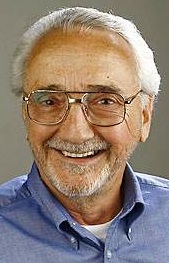So here's a question the executives at the Oregonian ought to answer sooner rather than later, if they want to do right by a community that relies on them:
Will the Portland Oregonian end 2013 as a daily newspaper?
There's been persistent chatter that it won't, that it will be cut back, maybe to three days a week, and the staff may be cut by something like a third - a massive transformation, even after the many slices and dices of recent years. If the people at Advance Publications are planning to do something like that, they owe it to their readers, advertisers and other economic and social partners to say so before it becomes a fait accompli (assuming it isn't already), to allow for some feedback, alternatives and suggestions.
This isn't idle rumor or speculation. There's plenty in the recent record to give cause to, at least, wonder.
Advance Publications, based in New York and owned mainly by the wealthy Newhouse family (the papers in the group used to be known as Newshouse Newspapers), traditionally has done relatively well by the newspapers it owns, giving them some flexibility and allowing many of them to become as successful journalistically as economically. The Oregonian has been (my view) for years the best paper overall in the Northwest, doing more things better than anyone else. (The O is Advance's only daily in the Northwest.)
The economic climate, and the hard hits to the newspaper industry, have hit Advance as much as other newspaper companies. The company has owned eight daily newspapers, generally small in size, and in 2009 cut them all to three or four times a week, with commensurate big staff cuts; the move was called "digital first" by corporate.
This year the New Orleans Times-Picayune, a 175-year-old institution, was hacked down from daily to thrice a week. (The news was broken by the New York Times, not by the paper itself.) An article in a Cleveland publication by a former Times-Picayune reporter recounted how "The following four-and-a-half months were a blur of protests, rallies, petitions, letter-writing campaigns and yard signs. The New Orleans Saints billionaire owner Tom Benson offered the buy the newspaper, while everyone from liberal actor Ed Asner (TV’s newspaper editor "Lou Grant") to conservative suburban Congressman David Vitter publicly condemned the changes. But Advance was unmoved. “We have no intention of selling, no matter how much noise there is out there,†Advance.net Chairman Steven Newhouse declared to The New York Times in mid-June. About 30% of the newspaper’s total staff was cut, including almost one-half of its newsroom. Beginning Oct. 1, the previously daily newspaper began being printed on Wednesdays, Fridays and Sundays."
The same thing happened about the same time, to less widespread note, to Advance's three dailies in Alabama, at Mobile Huntsville and Birmingham.
Cleveland was interested because its daily paper, the Plain Dealer, is also an Advance paper, and is going through ... changes. They are large scale, and seem to be falling into the "digital first" pattern.
Rebecca Theim, the New Orleans reporter, outlined the pattern to observe in Cleveland, starting with: "Yes, you know something bad is coming, but The Plain Dealer’s management still has a lot of sensitive and emotional decisions to make, including who will be fired and who will be spared, when it will happen and how everyone will be told. Based on the New Orleans experience, expect off-site, super-secret meetings from which employees — even those not in attendance — may end up divining their own fates."
So, yes: Is the Oregonian on the chopping block?
Or is Portland's journalistic future going to be crafted behind closed doors as it was in New Orleans and is in Cleveland? Resolution for 2013: Don't let that happen.





